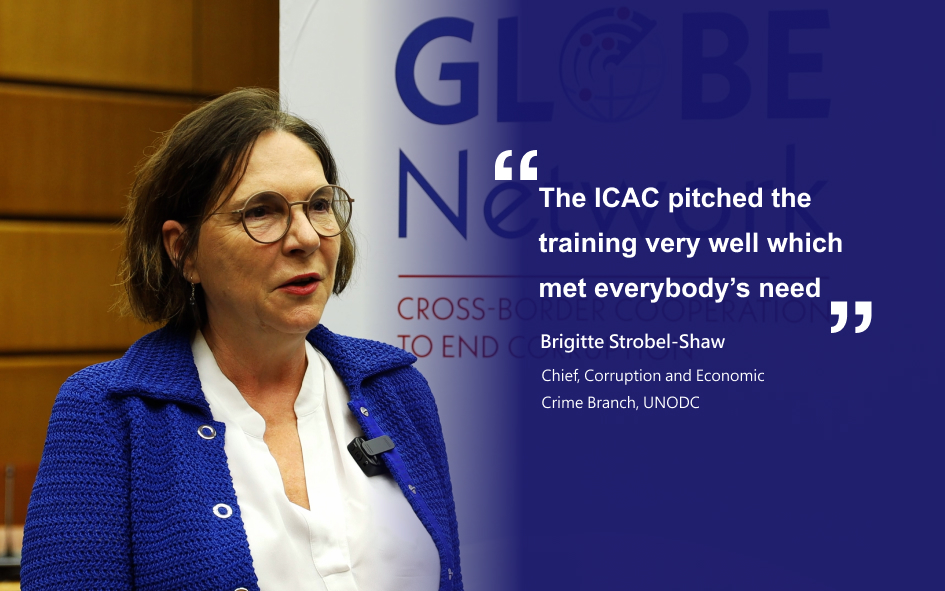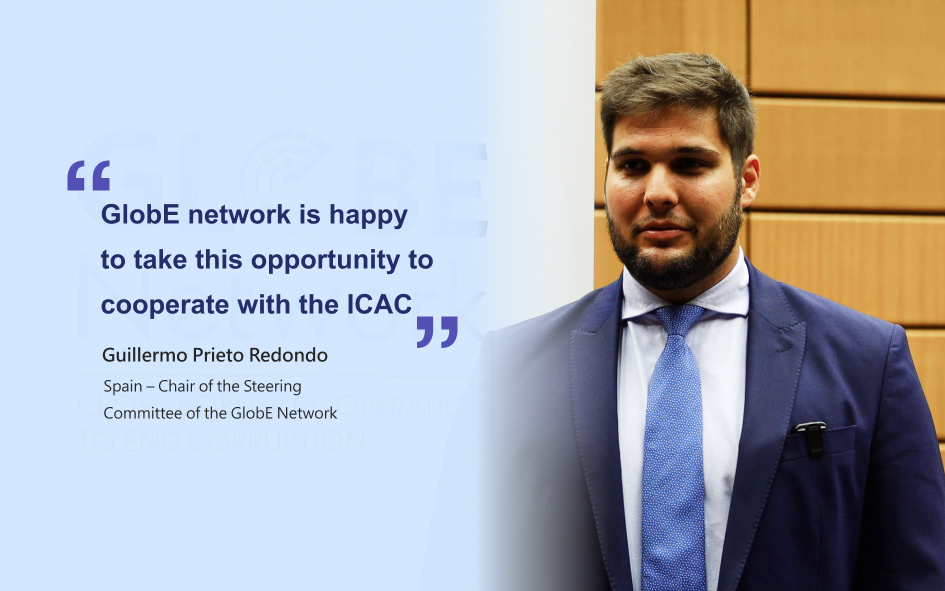ICAC shares graft fighting experience in first tech tools workshop for UNODC














One may take the many conveniences technology brings to everyday life for granted, but few may be aware of the extent modern technology has helped graft fighters contribute to a clean society. Let’s hear it from veteran ICAC officers.
In mid-July, for the first time graft-fighters in Hong Kong were invited by the United Nations Office on Drugs and Crime (UNODC) to share how the anti-corruption agency leveraged the latest technology to effectively crack corruption cases. The anti-corruption workshops, held at the UNODC’s headquarters in Vienna, Austria, was attended by over 100 participants from the Global Operational Network of Anti-Corruption Law Enforcement Authorities (GlobE Network). Highly praised by representatives from the UNODC and GlobE Network, the workshops laid a solid foundation for future cooperation and was a valuable experience for the ICAC which was set to open the Hong Kong International Academy Against Corruption early next year.
The five-member ICAC delegation, led by Assistant Director of Operations Department Bryan Chong Ka-lok, was in Vienna between July 10 and 13 to attend the Fifth Steering Committee Meeting and the Fourth Plenary Meeting of the GlobE Network as a member of the Chinese delegation. The ICAC was invited to host two anti-corruption workshops spanning one-and-a-half day to showcase the use of technology in the fight against corruption.


Over 100 representatives of the GlobE Network attended the workshops in person, while a few dozen participated online. They showed great interest in ICAC’s new Third Generation Video Interview Rooms (VIRs). Since 1991, suspects interviewed by the ICAC were recorded on video. In the past, the VIRs were only equipped with two cameras respectively capturing the overview of the interview room and the suspect. Each new VIR now features a high-resolution camera mounted on the ceiling to capture documents or digital devices shown to a suspect. The initiative is to avoid disputes about material shown during interviews when a case goes to court.
Other new features also include an auto-transcription system to generate transcript of an interview. The transcript will be generated about an hour after the interview for proof-reading and can be exported as subtitles to facilitate the court, the prosecution and the defence to promptly and accurately grasp the content of the videoed interview. The enhancement also improves transparency of the interview.
Representatives of the GlobE Network expressed their appreciation for ICAC’s initiative to leverage modern technology to enhance efficiency and quality of corruption investigation, and many of them indicated interest in introducing the same in their orgnisations. The ICAC is deeply honored that its experience was recognised by the international community and hopes that synergies would be generated through more frequent interactions and exchanges as a joint effort to promote integrity in the international community.